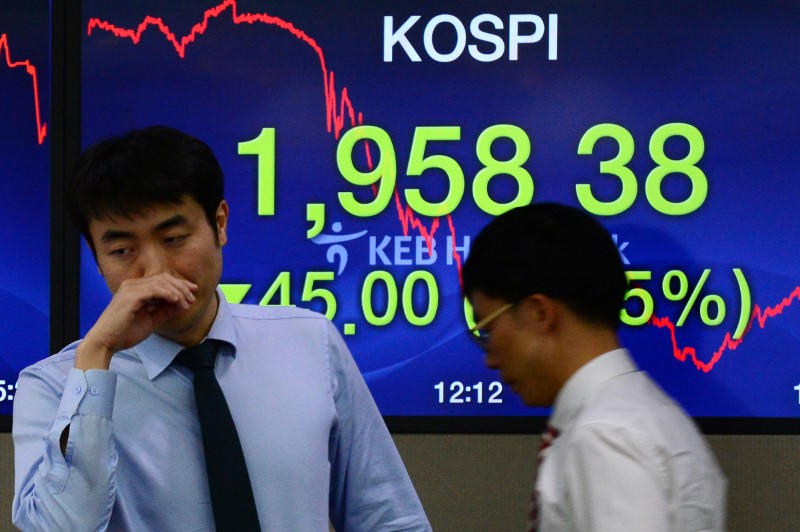By Ambar Warrick
Investing.com-- Asian stock markets tumbled on Friday, with most regional indexes headed for weekly losses amid growing expectations of hawkish moves by the Federal Reserve and fears of a global recession.
China’s Shanghai Shenzhen CSI 300 and Shanghai Composite indexes were among the worst performers for the day, sinking more than 1% each. Heavyweight real estate stocks weighed the most on the two after data showed Chinese house prices fell at their worst pace in seven years.
Losses in real estate stocks also spilled over into Hong Kong’s Hang Seng index, which shed 0.6%.
Despite data showing unexpected growth in China’s industrial production and retail sales, Chinese stocks were set to lose more than 3% this week, amid growing concerns over economic growth in the country. Beijing’s strict zero-COVID policy has taken a heavy toll on China’s economy this year.
Asian stocks saw a weak lead-in from Wall Street, as a continued drop in weekly jobless claims indicated strength in the U.S. labor market, giving the Fed more space to hike interest rates sharply.
Markets are pricing in a 75% chance the Fed will raise rates by 75 basis points next week. Traders also began pricing in the possibility of a 100-basis point raise, after hotter-than-expected U.S. inflation data this week.
Further weighing on sentiment, both the World Bank and the International Monetary Fund warned of a potential recession in the coming months. High inflation and steep interest rates are expected to weigh on economic growth this year and the next.
India’s Nifty 50 index fell 1.1%, while the Taiwan Weighted lost 0.9%. Indonesian stocks lagged their Southeast Asian peers with a 1.7% drop.
South Korea’s KOSPI index fell 1% after data showed the country’s trade deficit slipped to a new record low in August. High commodity prices and a softening won pushed up the cost of South Korea’s imports this year, weighing on the economy.
